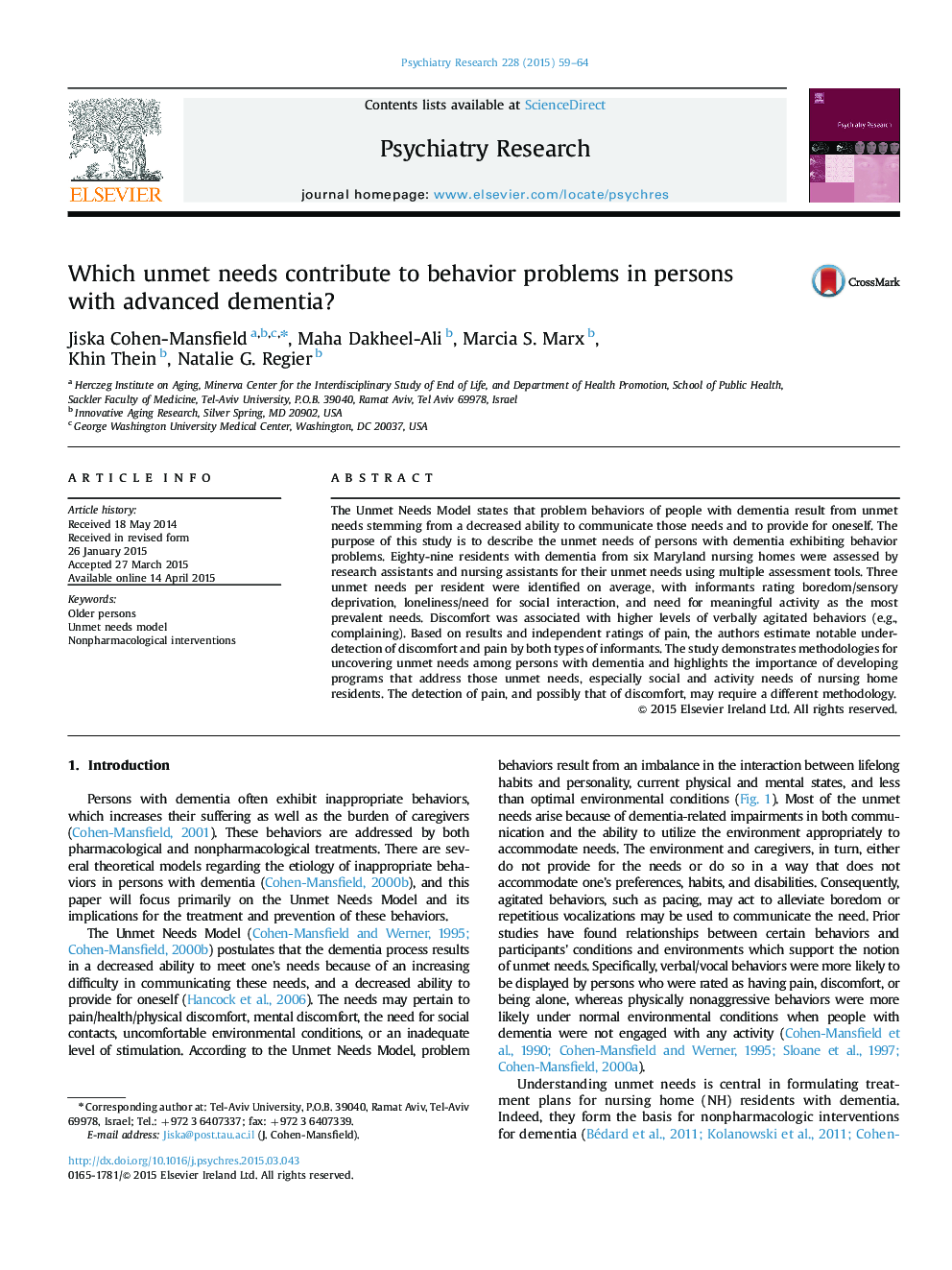| کد مقاله | کد نشریه | سال انتشار | مقاله انگلیسی | نسخه تمام متن |
|---|---|---|---|---|
| 332904 | 545874 | 2015 | 6 صفحه PDF | دانلود رایگان |
• On average, three unmet needs were identified per nursing home resident.
• The most common were needs for stimulation and for meaningful and social activities.
• The paper presents a methodology for the determination of unmet needs.
The Unmet Needs Model states that problem behaviors of people with dementia result from unmet needs stemming from a decreased ability to communicate those needs and to provide for oneself. The purpose of this study is to describe the unmet needs of persons with dementia exhibiting behavior problems. Eighty-nine residents with dementia from six Maryland nursing homes were assessed by research assistants and nursing assistants for their unmet needs using multiple assessment tools. Three unmet needs per resident were identified on average, with informants rating boredom/sensory deprivation, loneliness/need for social interaction, and need for meaningful activity as the most prevalent needs. Discomfort was associated with higher levels of verbally agitated behaviors (e.g., complaining). Based on results and independent ratings of pain, the authors estimate notable under-detection of discomfort and pain by both types of informants. The study demonstrates methodologies for uncovering unmet needs among persons with dementia and highlights the importance of developing programs that address those unmet needs, especially social and activity needs of nursing home residents. The detection of pain, and possibly that of discomfort, may require a different methodology.
Journal: Psychiatry Research - Volume 228, Issue 1, 30 July 2015, Pages 59–64
